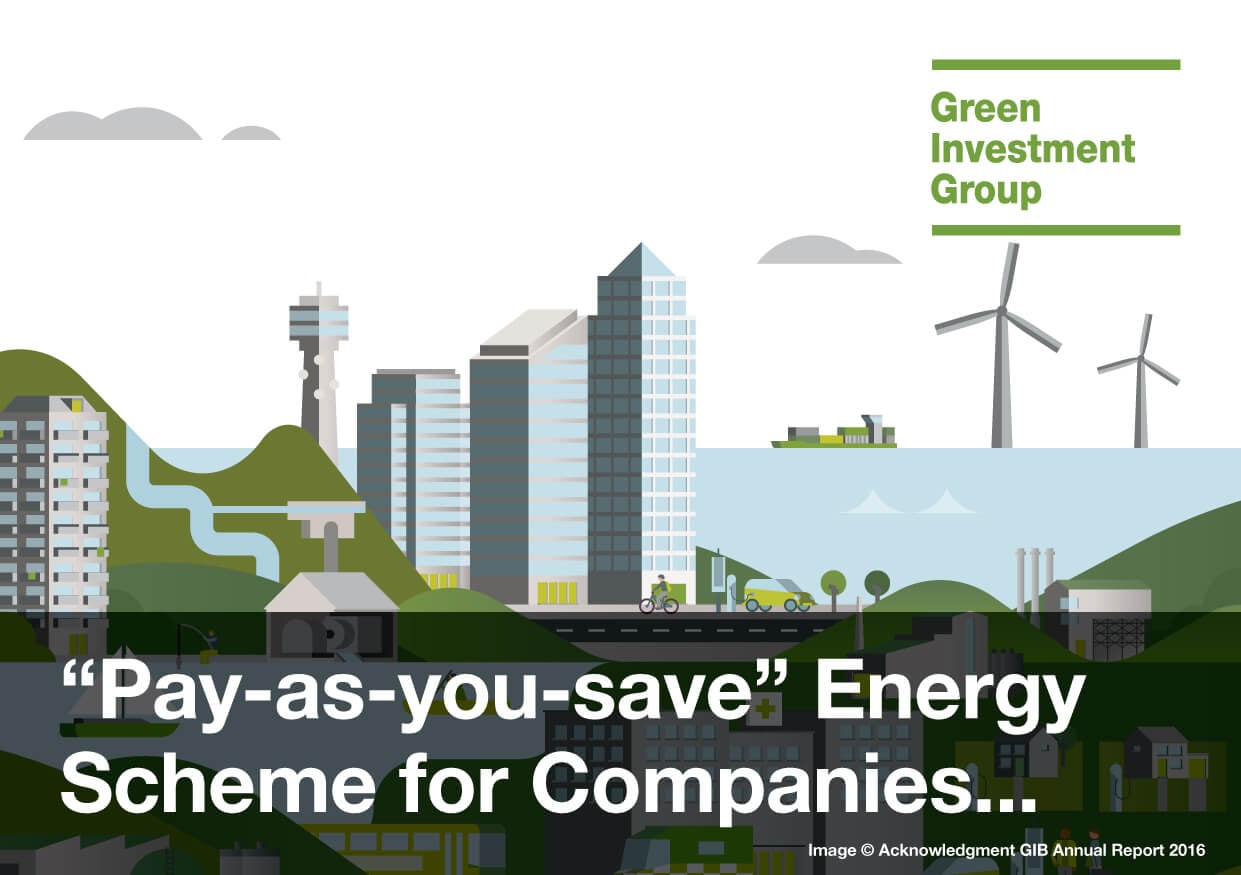“Pay-as-you-save” Energy Scheme for Companies
When energy providers launch new components, such as green elements or production strategies, their individual/private customers are more likely to be offered the opportunity to adjust their energy plans than their corporate clients.
This is partly because corporations are often considered to be reluctant to change, especially when there is a cost implication, but by not directly offering them the chance to upgrade their energy schemes, the providers are inadvertently contributing to the delay of energy innovation.
To combat this problem, Green Investment Group (GIG), previously known as the government-owned Green Investment Bank, has created a “pay-as-you-save” model, which targets medium and large energy users, allowing them to change and upgrade their energy systems with no upfront cost. Instead, the costs will be paid over time by businesses accruing energy savings; this practise will form part of the Energy Services Agreement.
This system encourages businesses to start using new technologies, such as solar panels or LED lighting, but also combination systems (like onsite combined heat or CHP). Simultaneously, businesses also receive advice on how to use these efficiently. The scheme is planned to roll out across the UK in the coming months and is being offered to both public and private organisations.
GIG’s scheme is also in accordance with the government’s new energy goals defined by the Clean Growth Strategy. One of the aims listed was the creation of an industrial energy efficiency scheme to help companies install measures to reduce energy consumption, in an effort to improve energy productivity by 20% by 2030.
The company’s head of distributed energy and onshore renewables, Bill Rogers, believes this is the way forward: “Rising costs, technological advances and regulatory pressures are changing the way organisations think about their own energy productivity. By utilising the latest distributed energy and energy efficiency technologies, organisations can generate, store, use, and actively manage energy more efficiently.”
Even if the “pay-as-you-save” scheme fulfils the aim of the Clean Growth Strategy, more similar schemes are needed across a number of providers. Dashboard expects other providers to follow suit and develop similar business-focussed systems for emergence in 2018. This is beneficial, not only in relation to energy solutions, but also for closer co-operation between provider and customer in the future.
